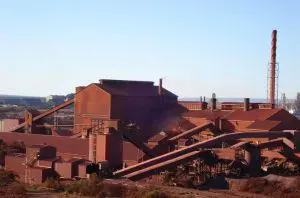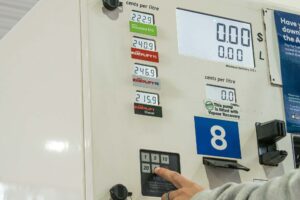South Africa’s new Energy Minister Jeff Radebe has announced that his government would drop plans to boost electricity supply from nuclear power plants in favour of increasing renewable energy sources as the country seeks to reduce its reliance upon coal.
In a media briefing held on Monday, Minister Radebe announced that the South African government had approved the draft updated Integrated Resources Plan (IRP 2018) report for publication and to seek public input.
Specifically, according to Radebe, “The National Development Plan (NDP) identifies the need for South Africa to invest in a strong network of economic infrastructure designed to support the country’s medium- and long-term economic and social objectives.”
Of particular importance in this revised draft is the lack of new nuclear capacity until at least 2030 – and, only then, after a “study to determine if more nuclear is needed.”
This follows the resignation of former South African President Jacob Zuma – after a vote of no confidence in Parliament in February earlier this year – who had been a supporter of building up to eight new nuclear power plants with capacity in excess of 9 GW.
The new draft of the IRP includes no new nuclear capacity and only minimal coal capacity additions – only 1 GW – by 2030. Instead, the plan is for new additional capacity to include 2.5 GW of hydro, 5.670 GW of solar PV, 8.1 GW of wind, and 8.1 GW worth of natural gas.
“The electricity generation and distribution landscape in South Africa is changing at a rapid pace compared to the period before 2010,” said Minister Radebe in explaining his country’s current energy plans. “In keeping to our climate change commitments, the country has also introduced renewable energy through independent power producers.
Technology advancements and the decline in cost make it possible for end users to now generate their own electricity. Increasing electricity prices have also made substitutes such LP Gas a viable alternative for cooking and heating.”
In 2030, South Africa’s energy mix will therefore look substantially different than today. Nuclear energy will only contribute approximately 4% to the overall energy mix, while coal is expected to account for 65% – less than its current levels, but still extremely high. Hydro will account for 6%, solar PV will account for 10%, and wind energy will account for 15%.
Natural gas is expected to be the second-largest generator with 16%, but that’s only just ahead of wind energy.
The IRP 2018 will also seek to curtail some of the ambitious capacity projects originally put forward in the IRP 2010. As Radebe explained, “the pace and scale of new capacity developments needed up to year 2030 must be curtailed compared to what was projected,” but this curtailment won’t impact the renewable energy in the long term, as “Imposing annual build limits on renewables does not impact the total installed capacity of renewable energy technology for the period up to 2030.”
What is important, according to Radebe, is that “There is significant change in the energy mix post 2030 which is mainly driven by decommissioning of old coal power plant that reach their end of life.”
It’s worth reading the draft (PDF) to get an idea of the thinking that has gone on behind the scenes to drive these new headlines. Specifically, as regards the potential commissioning of the country’s coal fleet, the authors of the report explain that “The full impact of decommissioning the existing Eskom fleet was not fully studied in the IRP Update.
This includes the full costs related to coal and nuclear decommissioning and waste management. The impact of security of supply versus de-carbonization of the economy is something that must be understood fully and requires comprehensive investigation.”
Specifically, according to the report, “It is evident that close to 75% (just under 30 GW) of the current Eskom coal fleet would have reached end-of-life by 2040.”










